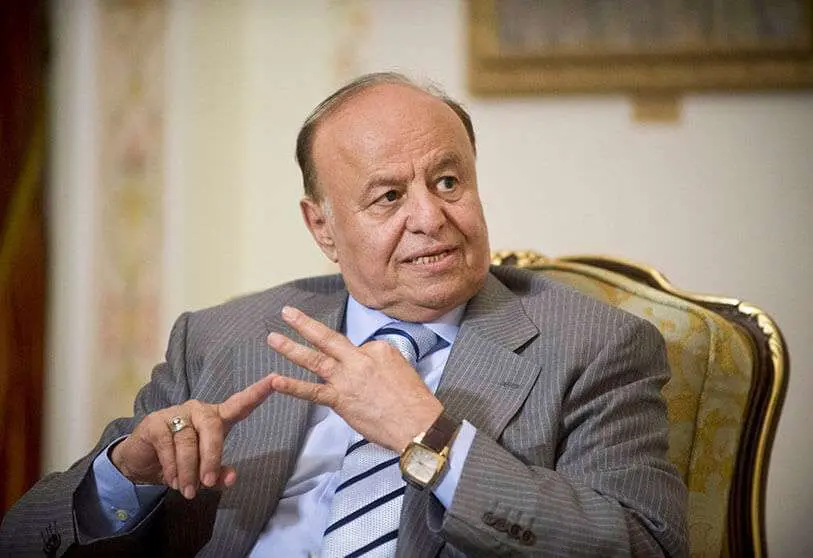Emirates and Saudi Arabia support the new joint government of Yemen

The United Arab Emirates (UAE) and Saudi Arabia, both members of the Arab coalition that has been supporting the internationally recognised government of Abd Rabbuh Mansur al-Hadi in the open war in Yemen against Shia Houthi rebels, have shown their support for the new executive formed by the Yemeni president and the separatists of the south.
Both the Kingdom and the Emirates welcomed the formation of a new government involving both sides in compliance with the agreement sealed a year ago in Riyadh to put an end to the open hostilities between Mr al-Hadi's executive and the separatists who confronted him by denouncing the abandonment to which they were subjected, the failure to comply with agreed terms and the poor conditions of the southern territory. All this is part of the current Yemeni war which has been waged since 2014 between the internationally recognised government and the Houthi rebels, militias supported by the Islamic Republic of Iran, the great enemy in the Middle East of Saudi Arabia and the Emirates and the main representative of the Shia branch of Islam, as opposed to the Sunni branch sponsored by the Saudi kingdom.
In a communiqué issued by the official Emirate agency WAM, the UAE's foreign ministry welcomed the "fulfilment" of this key point of the agreement signed in Riyadh and expressed its hope that this "will be a step on the way to achieving a political solution and speeding up the end of the Yemeni crisis".
The Saudi Arabian Ministry of Foreign Affairs welcomed the formation of a new Executive "that includes all components of the Yemeni spectrum". In a statement released via Twitter, the Saudi Foreign Ministry congratulated "the Yemeni parties for defending Yemen's interests and achieving the aspirations of the people to restore security and stability" in this country that has been plunged into a devastating war since 2014, which has plunged the nation into what the United Nations (UN) has come to call the worst humanitarian catastrophe in the world.
The Emirates, which showed its support for the so-called Southern Transitional Council (STC), the main body in power in southern Yemen, stressed the mediation work carried out to implement the agreement of the "brother kingdom of Saudi Arabia", a country which supports the executive of the Yemeni president Abd Rabbuh Mansur al-Hadi, who is in exile in the Saudi capital, and leads the Arab coalition which supports the executive militarily in the face of the threat of the Houthi insurgents.
For his part, the president of the Arab League Parliament, Adel al-Asoomi, in an official note, defined as "historic" this "fundamental step towards restoring security and stability in Yemen, as well as unifying the ranks and activating the state institutions".

This Friday the President of Yemen announced the formation of a new government, composed of 24 ministers, five of whom belong to the STC. This fulfils one of the main points of the Riyadh agreement, signed in November 2019 in the Saudi Arabian capital and sponsored by the country, but which was not implemented and collapsed in April this year when the separatists declared their self-government, accusing the executive of not having complied with the distribution of power. The appointment of Moein Abdel-Malik as prime minister and Ahmed Awad bin Mubarak as foreign minister was confirmed.
"The government consists of 24 portfolios divided equally between the north and the south, as stipulated in the Riyadh Agreement," Al-Hadi said, according to the announcement made on Yemeni state television on Friday night.
In a message posted on Twitter, Abdel-Malik tweeted: "The new government's declaration ... is the culmination of great efforts led by the president and the leadership of Saudi Arabia and the coalition to support legitimacy". "The declared government faces urgent historical responsibilities that require serious and determined work, a broad national vision, a clear and strong political and economic programme, and a strong will to (end) the coup (by the Houthi rebels), restore the state and stability, build institutions, develop resources, tackle corruption and improve services".
Yemeni troops and separatist forces have clashed sporadically in recent months in the southern provinces of the country, where control has been in dispute since the summer of 2019, when the southerners took over the city of Aden, the temporary seat of the Yemeni government.
On the other hand, the Yemeni army and the separatists of the south are fighting jointly against the Houthi rebels, who in 2014 conquered large areas of the north and west of the country and expelled the executive from the capital Sana'a, forcing President al-Hadi into exile.
This new phase in Yemen is expected to speed up the end of the Houthi coup d'état and the restoration of state control over the whole country. Thus eliminating Iran's influence.








